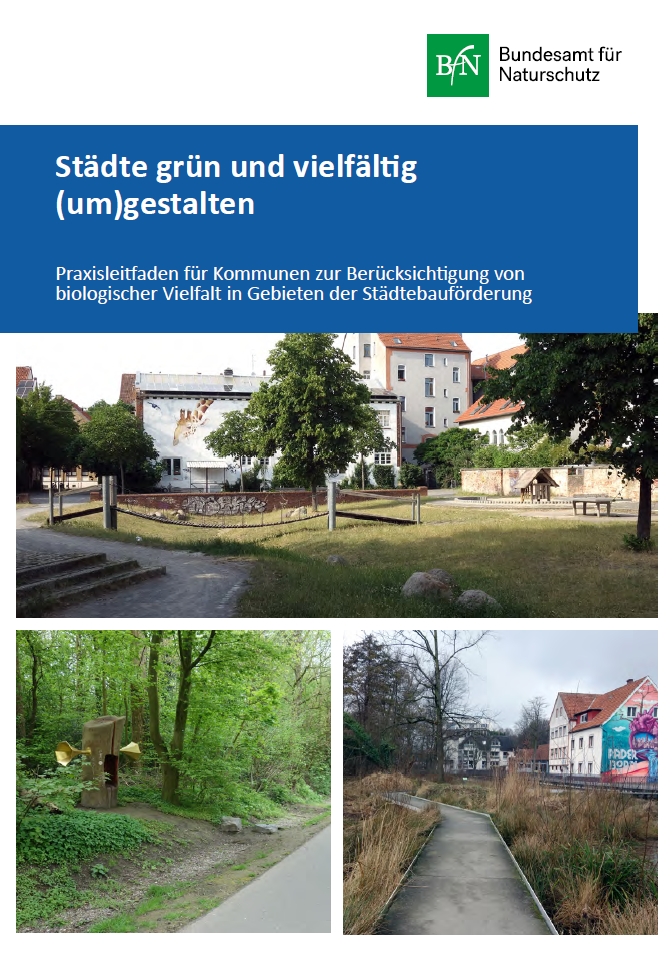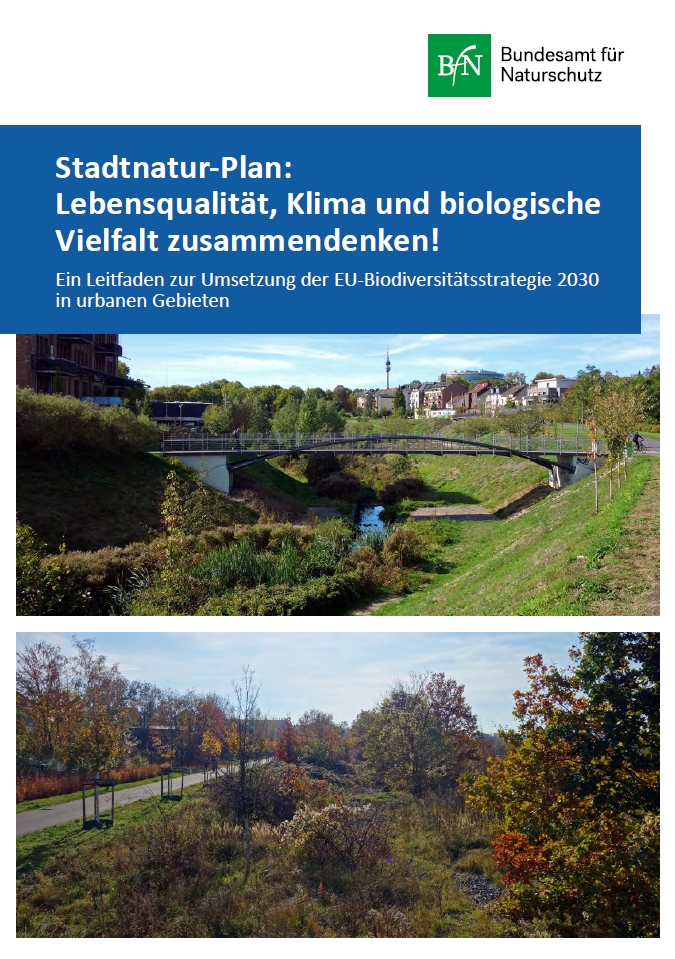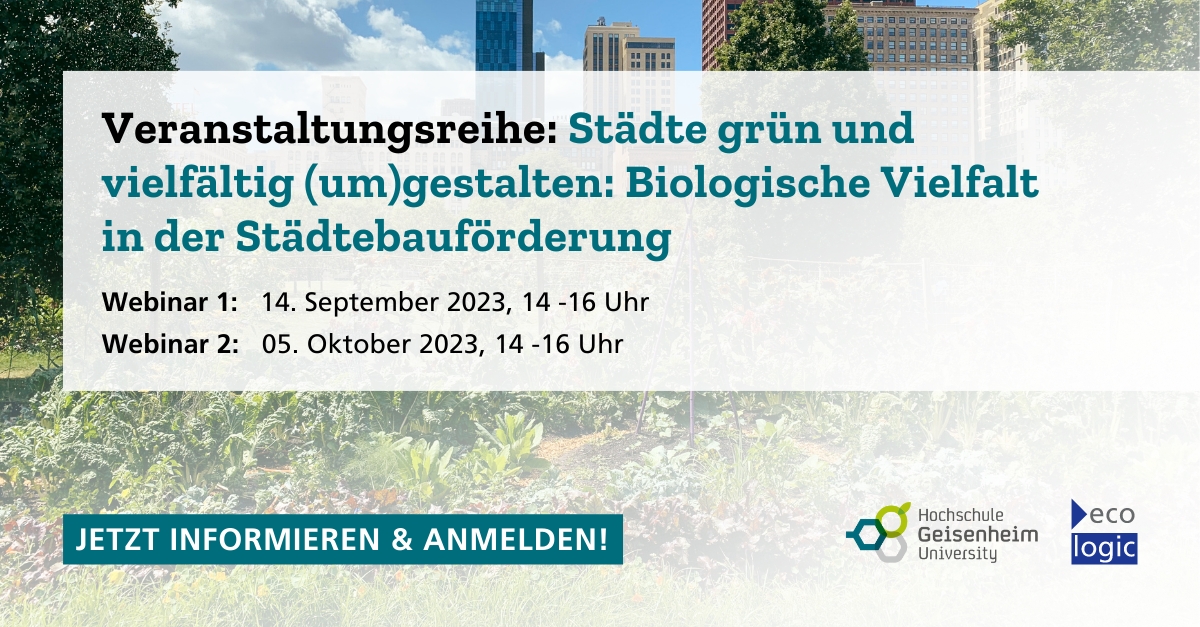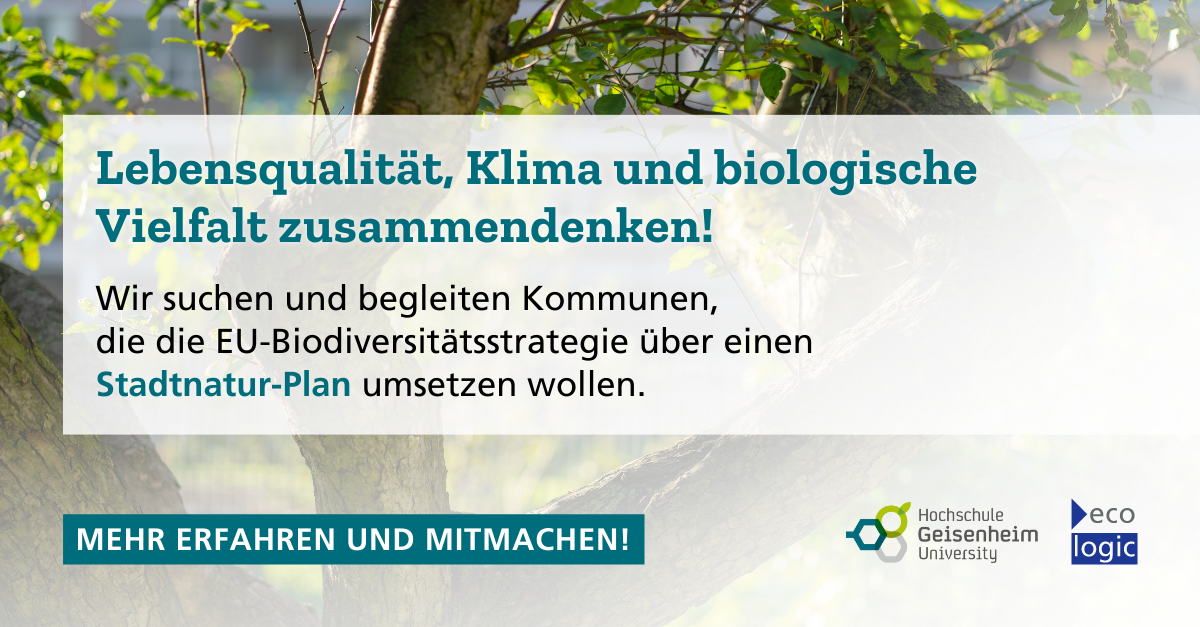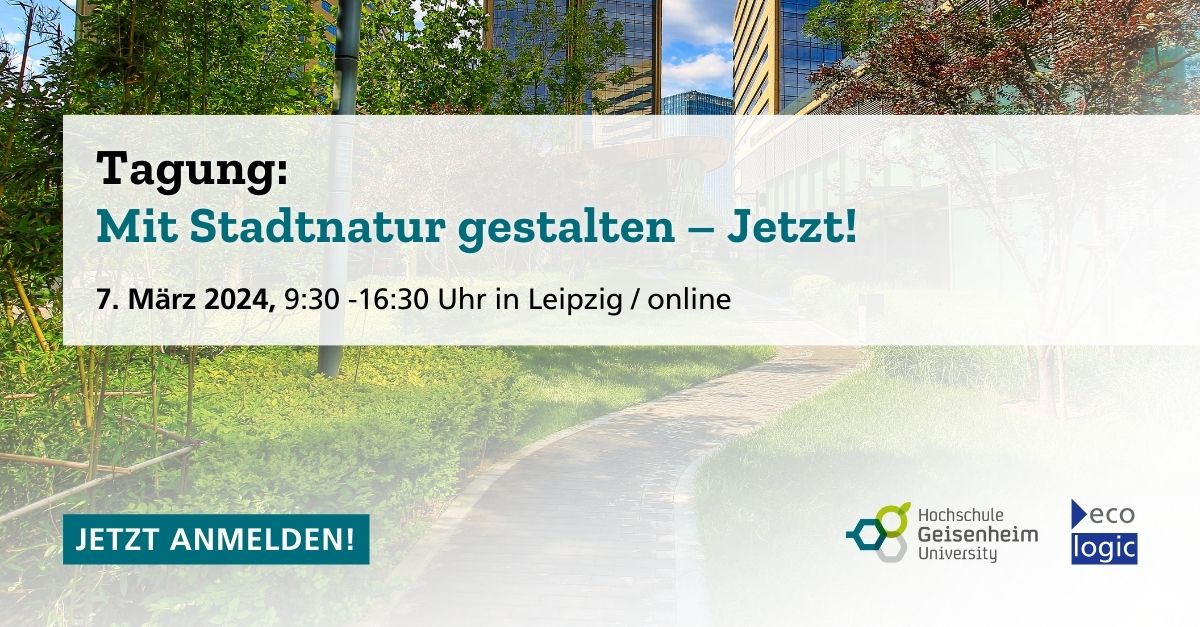Photo by Andreas Gücklhorn on Unsplash
Biodiversity is a key asset of conservation and – in the urban context – the basis for providing diverse urban green areas and provisioning ecosystem services. In the German Nature Conservation Offensive 2020 (the German Federal Environment Ministry's action programme for the implementation of its National Biodiversity Strategy), "experiencing green in the city" is a field of action aiming to strengthen the importance of urban green spaces as habitats for animals and plants and for providing opportunities for people to experience nature. Green and open spaces as well as building greenery (e.g. green facades or roofs) must therefore be planned and implemented – particularly when applying urban development funding – in a way that creates synergies between diverse biodiversity, climate mitigation and adaptation requirements as well as social components, such as environmental justice, education and recreation.
In order to address these challenges, Ecologic Institute and the University of Geisenheim will analyse the extent to which measures for strengthening biodiversity have been integrated in the application of urban development funding by German municipalities, and what good practice examples exist. Based on this research, municipalities will be informed about measures that are eligible for urban development funding which are effective in conserving or promoting biodiversity.
The following activities are planned:
- Reviewing literature and municipal spending of urban development funds to investigate the extent to which these take account of biodiversity and nature conservation concerns,
- Conducting interviews with experts at state and municipal level to gain deeper insights into implementation practices and to identify good practices,
- Co-developing a handbook targeting municipalities, planning offices and nature conservation authorities to provide practical recommendations, measures and good practice examples of applying urban development funding for biodiversity purposes,
- Deriving recommendations for the German federal and state levels, as well as products for public relations.
Ecologic Institute is a partner in this project, which is led by the University of Geisenheim. Ecologic Institute and coordinates the preparation of the handbook for the municipalities. The research project is funded by the Federal Agency for Nature Conservation (BfN).




